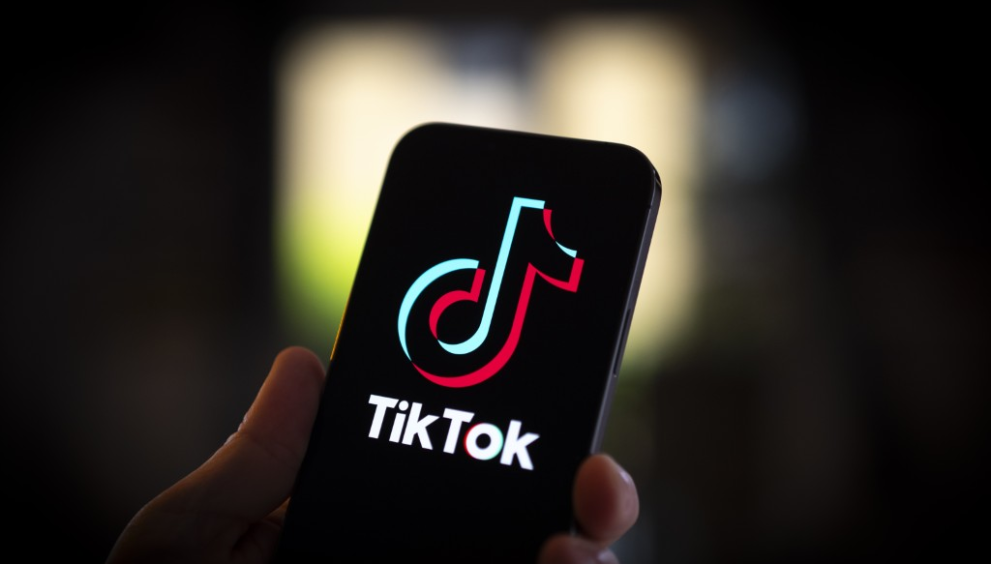TikTok’s End-of-the-World Conspiracy Theory Trend and Its Policy Implications

TikTok has become a hub for spreading bizarre end-of-the-world conspiracy theories, from vampires and wendigos to killer asteroids, according to academics and media reports. These theories, often presented in videos with eerie music and AI-generated voices, are gaining millions of views on the platform. Despite efforts by TikTok to combat misinformation, such content continues to proliferate due to its entertainment value and financial incentives for creators.

Washington, United States| AFP
From vampires and wendigos to killer asteroids, TikTok users are spewing crazy end-of-the-world conspiracy theories, according to academics, in yet another disinformation trend on a platform whose fate in the United States is uncertain.
According to the charity Media Matters, TikTok users are looking to monetise popular films that make false claims about the US government secretly capturing or keeping mythical monsters such as — wait for it — King Kong.
It is the latest example of misinformation circulating on the platform, a contentious issue that has been notably absent from recent policy talks as US lawmakers consider banning the Chinese-owned app on national security grounds.
The films, which have received millions of views, are sometimes accompanied by eerie background music and feature haughty AI-generated voices that sometimes imitate celebrities.
“We will all probably perish in the next several years. “Did you hear about this?” asked a voice impersonating podcaster Joe Rogan in one popular video.
“There’s this asteroid that is on a collision course with Earth,” the voice alleges, citing information released by a government worker who came upon a folder labeled “keep secret from the public.”
After AFP contacted TikTok for comment, at least one account peddling that video appeared to have been deactivated.
‘Very engaging.’
According to TikTok disinformation researcher Abbie Richards, conspiracy theory films, which are frequently shared by anonymous accounts, often have telltale evidence of AI-generated graphics, such as extra fingers and distortions.
According to Richards, peddling such beliefs can be financially profitable, as TikTok’s “Creativity Program” pays artists for content published on the network.
It has resulted in what she refers to as a cottage economy of conspiracy theory movies powered by artificial intelligence tools such as text-to-speech apps, which are widely and freely available online.
A spokesperson for TikTok stated that “conspiracy theories are not eligible to earn money or be recommended” in user feeds.
“Harmful misinformation is prohibited, with our safety teams removing 95 percent of it proactively before it’s reported,” she was quoted as saying by AFP.
Nonetheless, guides on platforms such as YouTube teach people how to make “viral conspiracy theory videos” and benefit from TikTok’s Creativity Program.
One such lesson explicitly urged viewers to begin by making up “something outrageous,” such as “scientists were caught hiding a saber-toothed tiger.”
In the Media Matters analysis, Richards noted that financially encouraging content that is both highly entertaining and inexpensive to produce fosters the growth of conspiracy theories.
Threat of AI
Such fears, fueled by rapid advances in AI, are especially acute in a year marked by significant global elections.
Last week, the European Union used its powerful Digital Services Act (DSA) to press various platforms, including TikTok, on the hazards of AI, particularly deepfakes, ahead of the 27-nation bloc’s elections.
In the United States, where the app has about 170 million users (almost half of the population), lawmakers last week unanimously supported a bill to ban TikTok unless its Chinese parent company ByteDance divested itself within six months.
The law, which still needs to clear the more cautious upper house of the United States Congress, has the potential to enrage young people during a critical election year.
US policymakers have repeatedly expressed worry over TikTok’s purported ties to the Chinese government, user data security, and potential influence on national security.
According to a study from the US Office of the Director of National Intelligence, the Chinese government is utilizing TikTok to expand its global influence operations and promote pro-Beijing narratives while undermining American democracy, especially through disinformation.
“Disinformation should be part of the debate about TikTok,” Aynne Kokas, a media studies professor at the University of Virginia, told AFP.
Many experts, as well as youthful users who rely on the app for news, reject TikTok’s prohibition, arguing that it is wrong to single out the platform.
“There is a lot of misinformation on TikTok, just like on other social media platforms.” Jameel Jaffer, head of Columbia University’s Knight First Amendment Institute, told AFP that some of the misinformation is harmful.
“(However), giving the government the right to suppress misinformation — or to prohibit Americans from accessing sites that promote misinformation — is not a reasonable approach to this situation. “It would not be a constitutional one,” he stressed.







